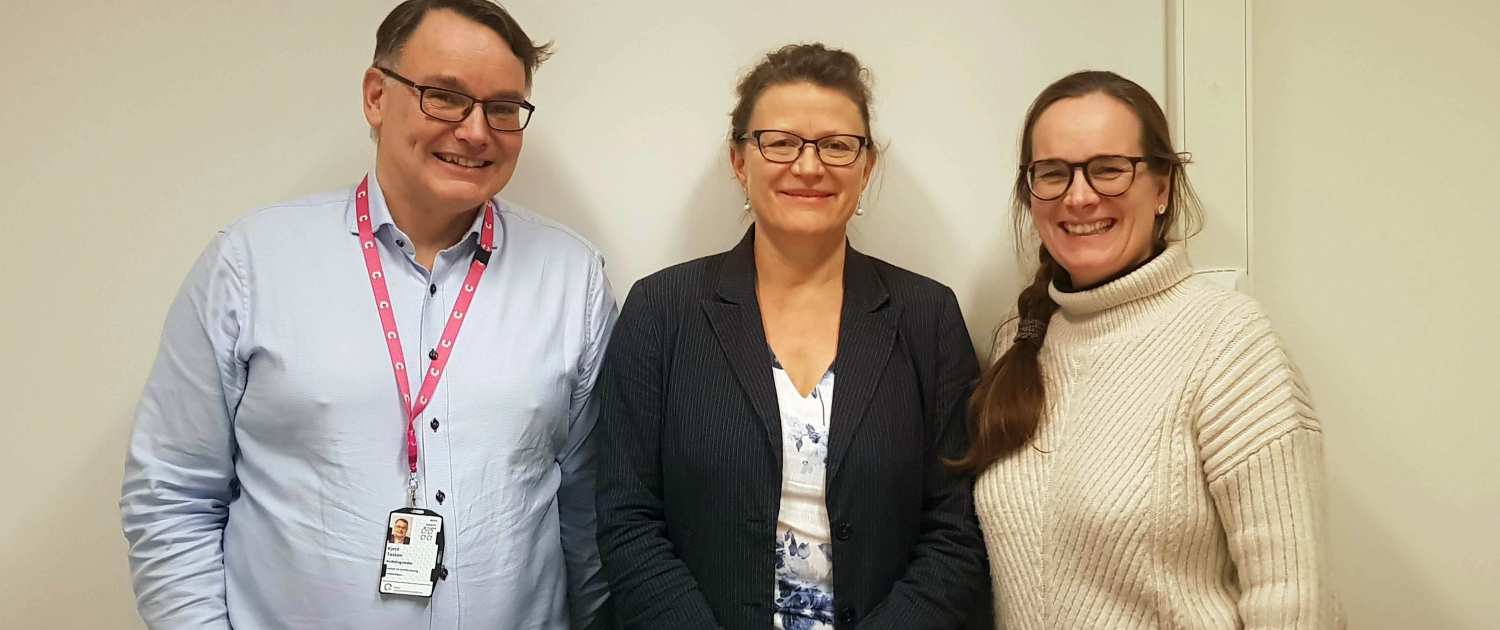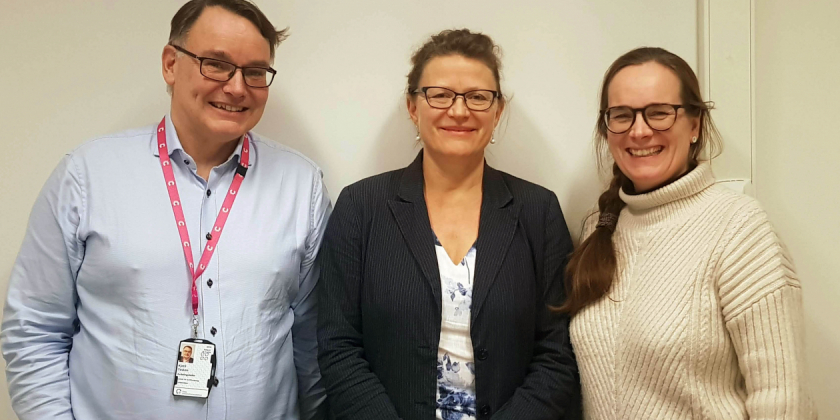IMPRESS leads the way for cancer precision medicine

IMPRESS Norway is a national clinical study starting in 2021 working towards implementing cancer precision medicine in Norway.
As one of the initiators behind IMPRESS-Norway, Oslo Cancer Cluster is thrilled to see this national clinical study in cancer precision medicine become a reality.
Precision medicine is an approach to patient care that allows doctors to select treatments that are most likely to help patients based on a genetic understanding of their disease, according to the National Cancer Institute.
During 2019, Oslo Cancer Cluster hosted a series of workshops with public and private stakeholders in cancer. The joint goal was to accelerate the implementation of cancer precision medicine in Norway. The initial idea for IMPRESS emerged in one of these workshops. A dedicated team, including Kjetil Taskén, Sigbjørn Smeland, Åslaug Helland and Hege Russnes, at Oslo University Hospital quickly turned it into a national effort together with colleagues at university hospitals across Norway.
IMPRESS involves the active support of leading global pharmaceutical companies that will provide the study drugs and contribute with per patient fees. Public funding will help to ensure this innovative study paves the way for more cancer clinical trials in Norway.
National infrastructure for precision diagnostics is needed and is currently being set up at all Norwegian cancer hospitals. Cancer patients who are eligible for clinical trials can soon be tested and selected based on their specific genetic profile.
A new public-private partnership called CONNECT is also being established with Oslo Cancer Cluster as project coordinator. CONNECT will provide an arena for all stakeholders to jointly address key obstacles and to pilot novel solutions to advance the implementation of precision cancer medicine.
In the newly released Norwegian state budget, an additional NOK 30 million is allocated for personalized medicine. NOK 25 million is earmarked for the implementation of genetic precision diagnostics at the Norwegian hospitals. This demonstrates a commitment from the Norwegian government to advance the implementation of precision medicine for Norwegian cancer patients.
Learn more: Read the article (in Norwegian) at Oslo University Hospital’s website or the English translation below.
IMPRESS NORWAY: Large national precision medicine study in cancer
IMPRESS-Norway, a large national study on precision medicine against cancer, starts in the beginning of 2021. The study will, based on individual and expanded gene analysis give its participants the opportunity to receive so-called off-label medicines, that is medicines approved for the treatment of other diseases, to fight their specific unique cancer disease.
IMPRESS-Norway is a national clinical cancer study in precision medicine. The goal with the study is to test approved pharmaceuticals on new patient groups based on their cancer type and genetic mutations (molecular profile). The study is open for all hospitals in Norway that treat cancer patients and so far, thirteen hospitals have decided to participate in the study.
In the study, we will, in addition to data on clinical efficacy, collect comprehensive information about the molecular changes in the cancer tumour, by performing a complete DNA analysis, whole genome sequencing. This will provide us with a unique and comprehensive dataset that can be used by researchers across Norway to answer key questions in cancer treatment, such as improving the selection of patients for treatment and understanding resistance mechanisms.
For patients with advanced cancer who have received standard treatment
Patients with advanced cancer who have already received standard treatment are eligible to participate in IMPRESS-Norway, and we expect between 250 and 500 patients to be recruited every year. The patients will be included in patient groups (cohorts) based on molecular profiles, cancer diagnosis and medicine. Each cohort will first include eight patients. If one or more patients respond to the treatment, then another sixteen patients will be included. A cohort is considered positive if five or more patients of the total twenty-four patients, respond to the treatment.
The protocol for the study has been sent to The Norwegian Medicines Agency and it is expected to start in the beginning of 2021. The patients need to be referred to the study by their general practitioner or hospital clinician.
The study requires a national infrastructure
IMPRESS-Norway requires that cancer patients are offered an in-depth analysis of the cancer tumour’s genetic mutations. Therefore, the academic environments have worked, with dedicated funds from the regional health authorities, to establish a national infrastructure for precision diagnostics for cancer patients (National infrastructure for precision diagnostics called InPred).
Mapping 500 genes
The establishment of these new diagnostic services is already well underway at several hospitals. The goal is to offer expanded molecular diagnostics with mapping of 500 genes to all cancer patients who are eligible for clinical trial inclusion. The molecular results will be discussed in a national molecular tumour board, consisting of clinicians, pathologists and informaticians, and if the analysis shows that the patient has genetic mutations that can be treated with targeted therapy, the patient can be referred to the appropriate clinical trial or to IMPRESS-Norway.
Collaboration with pharmaceutical companies
IMPRESS-Norway is in dialogue with 17 pharmaceutical companies about contributing approved drugs that can be tested outside their approved indication (off-label). One goal with the study is to try out a concrete model for the implementation of personalized medicine. The clinical study will give health personnel and researchers unique experience with precision medicine and the use of molecular diagnostics in treatment, and will offer new treatments to a group of patients who have used up all other options. In addition, the collaboration partners of IMPRESS-Norway are planning to build a public – private collaboration (called CONNECT) where the experiences from IMPRESS-Norway will provide knowledge of how precision medicine affects, among other things, health economy, the health industry and the health services.
Learning from the Netherlands
IMPRESS-Norway is modelled on a precision medicine study called DRUP, which is currently ongoing in the Netherlands. Similar studies are being planned in several European countries and IMPRESS-Norway plans to collaborate on data sharing with the other Nordic countries. This is especially important since we know from experiences with the DRUP study that individual molecular profiles are so rare that it is difficult to fill the cohorts in a single country and therefore it becomes important to compile data from similar cohorts across studies.






